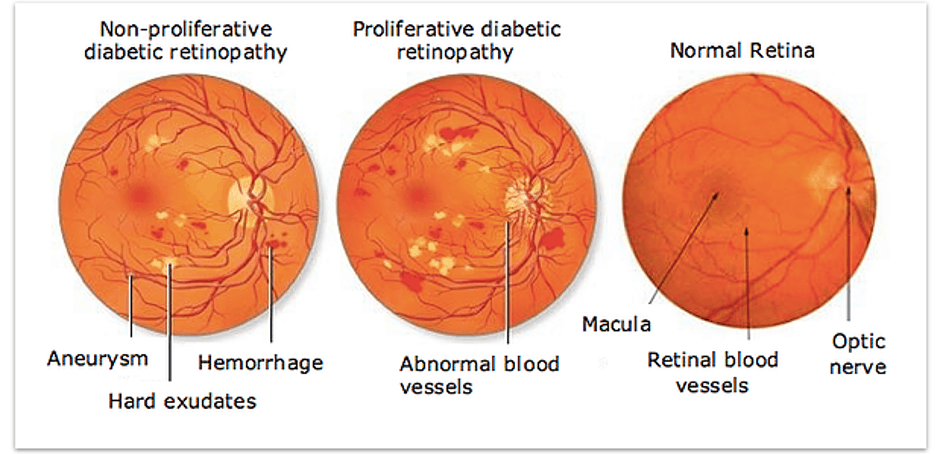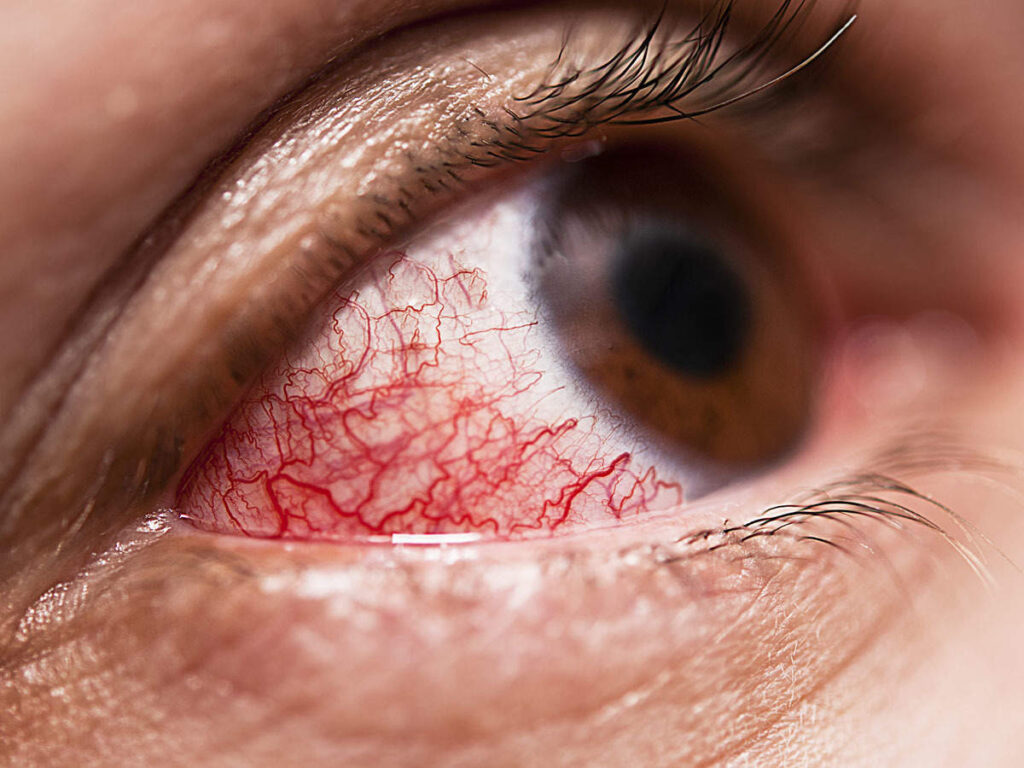Contents
What is Diabetic Retinopathy?
Diabetic retinopathy is a complication of diabetes that affects the retina, the light-sensitive tissue at the back of the eye. The retina’s role is crucial, as it sends visual signals to the brain. Unlike other tissues, the retina cannot be changed, transplanted, or replaced.
Stages of Diabetic Retinopathy
Diabetic retinopathy progresses through three stages:
- Non-Proliferative Diabetic Retinopathy (NPDR): In this early stage, diabetes damages blood vessels in the retina, causing them to leak fat and fluid. This leakage leads to swelling and fluid accumulation in the retina, resulting in blurred vision. Treatment typically involves injections, laser therapy, or a combination of both.
- Proliferative Diabetic Retinopathy (PDR): As the condition advances, the retina does not receive adequate oxygen and blood due to damaged blood vessels. The eye compensates by forming new blood vessels, which are weak and prone to bursting, causing bleeding and sudden vision loss. This stage requires multiple injections, laser treatments, and medications.
- Tractional Retinal Detachment: In this severe stage, the new blood vessels formed during PDR become weak and contract, pulling the retina off its position. Surgery is the only treatment option, involving a major procedure called vitrectomy. The extent of vision recovery post-surgery depends on the retina’s condition.

Symptoms of Diabetic Retinopathy
Recognizing the symptoms of diabetic retinopathy is crucial for early intervention. Key symptoms include:
- Blurred Vision: Blurriness in vision due to swelling and fluid accumulation in the retina.
- Floaters: Dark spots or strings in your vision, caused by blood or debris in the eye.
- Difficulty Seeing at Night: Impaired night vision, making it challenging to see in low-light conditions.
- Fluctuating Vision: Vision that changes frequently, often related to blood sugar levels.
- Impaired Color Vision: Difficulty distinguishing colors accurately.
- Dark or Empty Areas in Vision: Blind spots or areas of vision loss.
- Vision Loss: Significant vision loss or blindness in advanced stages.
Diagnosis and Tests
When visiting an eye doctor for a diabetes check-up, the doctor may prescribe several tests to diagnose diabetic retinopathy:
- Optical Coherence Tomography (OCT): Similar to a CT scan of the retina, OCT provides detailed images to assess the stage of retinopathy.
- Fluorescein Angiography: A dye is injected into the bloodstream, and photos of the retina are taken to determine the extent of damage and guide treatment.
Treatment Options
Effective management of diabetic retinopathy involves controlling diabetes and utilizing various treatment options:
- Injections: Anti-VEGF injections reduce retinal swelling and dry up new blood vessels. Common types include Avastin (costing around 10 thousand), Razumab (20 thousand), and Eyelea (55 thousand).
- Laser Treatment: A green laser repairs the retina by targeting areas affected by retinopathy.
- Surgery: In cases of blood accumulation on the retina or retinal detachment, the doctor performs a vitrectomy. The outcome depends on the retina’s condition at the time of surgery.
Preventive Measures
Prevention is key to managing diabetic retinopathy:
- Regular Eye Exams: Schedule annual comprehensive eye exams to detect early signs of retinopathy.
- Control Blood Sugar Levels: Maintain target blood sugar levels through diet, exercise, and medication.
- Monitor Blood Pressure and Cholesterol: Keep these levels in check to reduce retinal damage risk.
- Healthy Lifestyle: A balanced diet and regular physical activity help manage diabetes and its complications.
- Avoid Smoking: Smoking can worsen diabetic complications, including retinopathy.
Conclusion
As India is known as the diabetic capital of the world, it is essential for those with diabetes to get their eyes checked regularly by a specialist. Early detection and timely treatment of diabetic retinopathy can prevent vision loss and maintain a good quality of life. If you have diabetic retinopathy, seek treatment promptly to protect your vision. You can check online diabetes experts in the DiabetesMantra Directory. If you also want to get treatment for diabetic retinopathy, contact our helpline +91 9711116605 and book a free check-up today.
